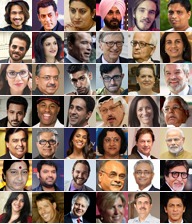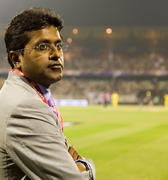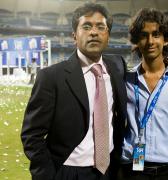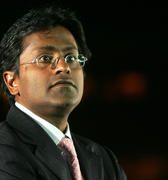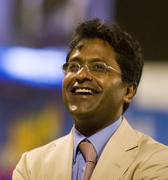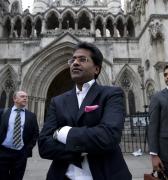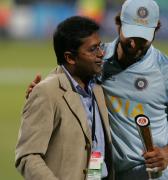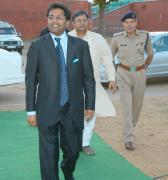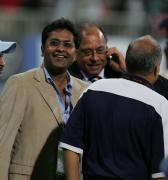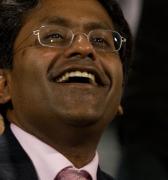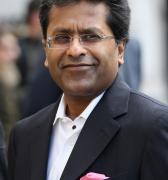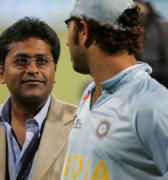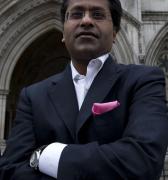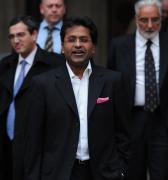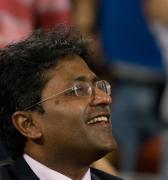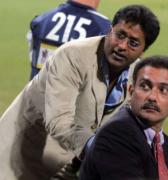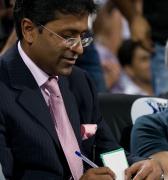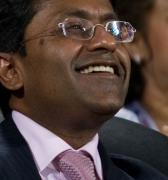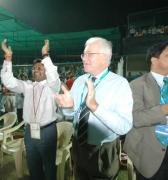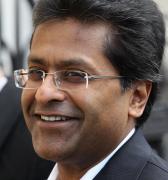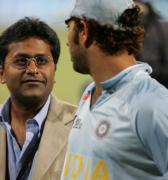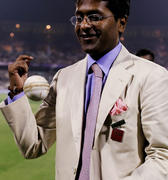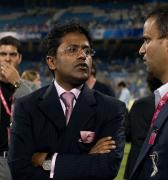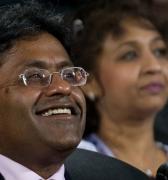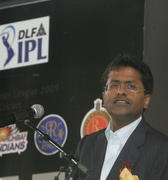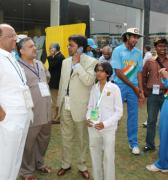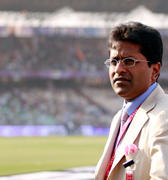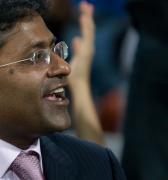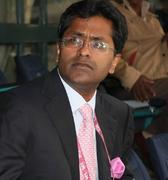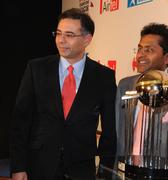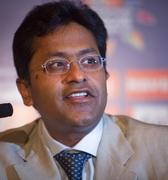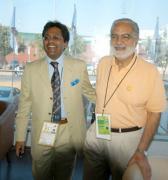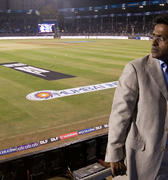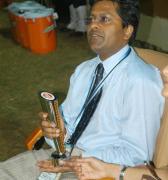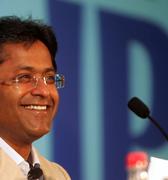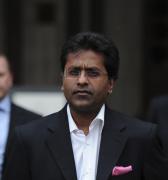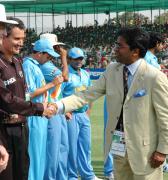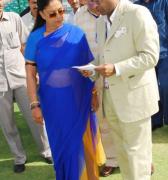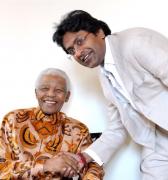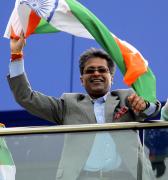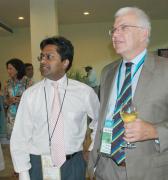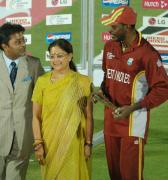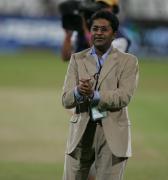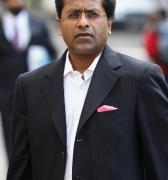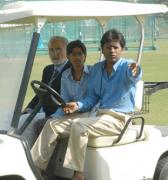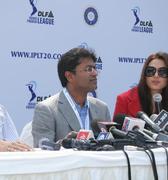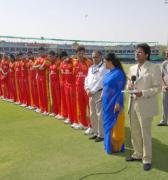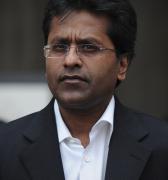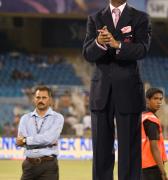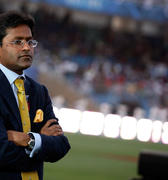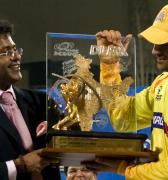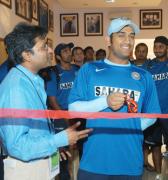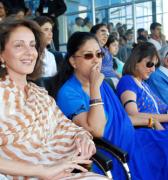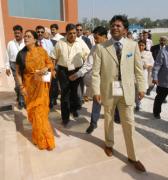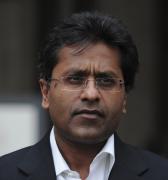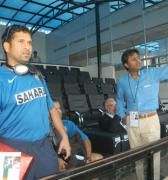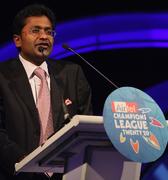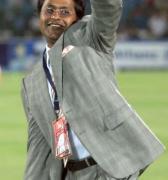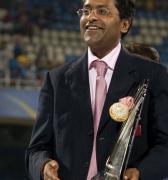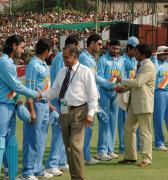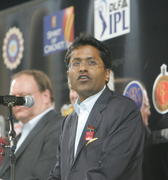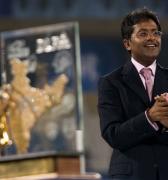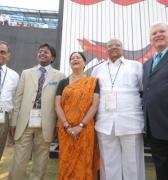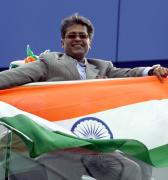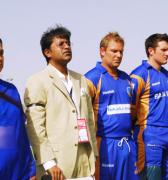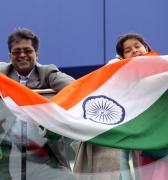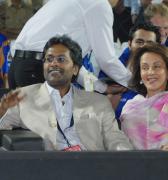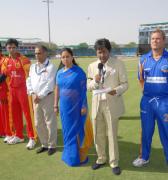BCCI against two-tier Test system: Thakur
BCCI president Anurag Thakur has said his board will oppose the proposed two-tier Test system to "protect the interests" of smaller member nations. As the head of the powerful BCCI, Thakur's statement lends heft to the criticism of the proposal by Sri Lanka Cricket and the Bangladesh Cricket Board, even as the boards of Australian and New Zealand have welcomed the move.
"The BCCI is against the two-tier Test system because the smaller countries will lose out and the BCCI wants to take care of them," Thakur told the New Indian Express. "It is necessary to protect their interests."
The proposal to split Test cricket into two tiers - with seven nations in tier one, and five, including two new Test nations, in the second tier - was mooted at the ICC's annual conference, in Edinburgh, where ICC chief executive David Richardson advocated a "proper competition structure", with promotion and relegation, for Test cricket to have greater context. "Unless we can give some meaning to these series beyond the rankings and a trophy, then interest in Test cricket will continue to waver," Richardson said. "The same applies if we allow uncompetitive Test cricket to take place too often."
While SLC voiced skepticism about the financial model of the two-tier system, the BCB felt Bangladesh's growth would be affected should they be divorced from the top teams. "We believe that more we play against competitive sides, the better we will get," BCB vice-president Mahbubul Anam said. "If we didn't play against better-standard sides in ODIs, we wouldn't have come this far. We were given a reality check when we were promoted to the highest level. I feel that if we go backwards, our cricket will regress."
Thakur's comments seemed to address both concerns as he spelt out the drawbacks of the two-tier system. "In the two-tier system, they will lose out on a lot, including revenue and the opportunity to play against top teams," he said. "We don't want that to happen. We want to work in the best interests of world cricket and that is why our team plays against all the countries".
BCCI president Anurag Thakur has said his board will oppose the proposed two-tier Test system to "protect the interests" of smaller member nations.
As the head of the powerful BCCI, Thakur's statement lends heft to the criticism of the proposal by Sri Lanka Cricket and the Bangladesh Cricket Board, even as the boards of Australian and New Zealand have welcomed the move.
"The BCCI is against the two-tier Test system because the smaller countries will lose out and the BCCI wants to take care of them," Thakur told the New Indian Express. "It is necessary to protect their interests."
The proposal to split Test cricket into two tiers - with seven nations in tier one, and five, including two new Test nations, in the second tier - was mooted at the ICC's annual conference, in Edinburgh, where ICC chief executive David Richardson advocated a "proper competition structure", with promotion and relegation, for Test cricket to have greater context.
"Unless we can give some meaning to these series beyond the rankings and a trophy, then interest in Test cricket will continue to waver," Richardson said. "The same applies if we allow uncompetitive Test cricket to take place too often."
While SLC voiced skepticism about the financial model of the two-tier system, the BCB felt Bangladesh's growth would be affected should they be divorced from the top teams. "We believe that more we play against competitive sides, the better we will get," BCB vice-president Mahbubul Anam said. "If we didn't play against better-standard sides in ODIs, we wouldn't have come this far. We were given a reality check when we were promoted to the highest level. I feel that if we go backwards, our cricket will regress."
Thakur's comments seemed to address both concerns as he spelt out the drawbacks of the two-tier system. "In the two-tier system, they will lose out on a lot, including revenue and the opportunity to play against top teams," he said. "We don't want that to happen. We want to work in the best interests of world cricket and that is why our team plays against all the countries".




